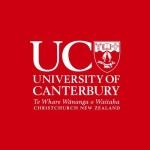Too much green-washing: too many different types of eco-labels says UC researcher
A University of Canterbury researcher is slamming consumer goods companies for green-washing supermarket shelf items with a flood of eco-labels.
There are so many labels now the products claiming all sorts of environmental and social issues that it is very hard to distinguish, which one to trust.
UC College of Business and Economics research director Pavel Castka said today there were so many labels with products claiming all sorts of environmental and social issues that it was difficult to distinguish, which one to trust.
There were two mains categories of eco-labels to look out for, one less and one more trustworthy, he said.
``A food producer may label their chips are ‘all natural’ but what does it mean? Well, it is often very hard to tell.
``Then there are eco-labels by independent labelling schemes. These are labels that are independently audited and issued by third parties. For instance, for a product to display the Fairtrade mark it must meet the international Fairtrade social, economic and environmental standards which are set by the certification body Fairtrade International.
``These standards are agreed through a process of research and consultation with key participants in the Fairtrade scheme, including producers themselves, traders, NGOs, academic institutions and labelling initiatives such as Fairtrade Australia & New Zealand. Even eco-labels by labelling schemes have experienced a growing number of green-washing cases.’’
Associate Professor Pavel Castka and Professor Charles Corbett from University of California Los Angeles have been investigating global adoption of eco-labelling schemes for the last two years.
Supermarket shelf items as packed with eco-labels such as green, fair trade, natural or biodegradable to suggest products had some form of environmental and social quality.
This includes things like fair trade coffee and chocolate; fish from sustainable fisheries; cosmetics (in particular shampoo) which are labelled as organic, natural, or not tested on animals.
Associate Professor Castka said offices and businesses and an increasing number of organisations used, for instance, paper that was labelled paper from sustainable sources, unbleached paper or paper manufactured with recycled water.
``Despite the economic downturn, the demand for environmentally and / or socially responsible products is growing. An international consumer watchdog TerraChoice has reported that the number of mostly labelled green products offered by retailers went up by 73 percent between 2009 and 2010.
``The UK’s Co-operative Bank said that expenditure on green goods and services grew by 18 per cent between 2008 and 2010 despite the economic downturn.’’
Associate Professor Castka recommended shoppers look for well-established eco-labelling schemes such as FSC or fairtrade.
``We found that the most adopted eco-labels were also the most consistent; with a third party behind the eco-label making sure that each certified product fulfils their criteria.
``These eco-labels may not be the most stringent but they are stringent enough to make a difference. Presumably, if you purchase such products you expect a positive environmental and/or social impact.
``My research also has implications for New Zealand businesses, in particular exporters. They need to stick to labels that matter,’’ Associate Professor Castka said.
